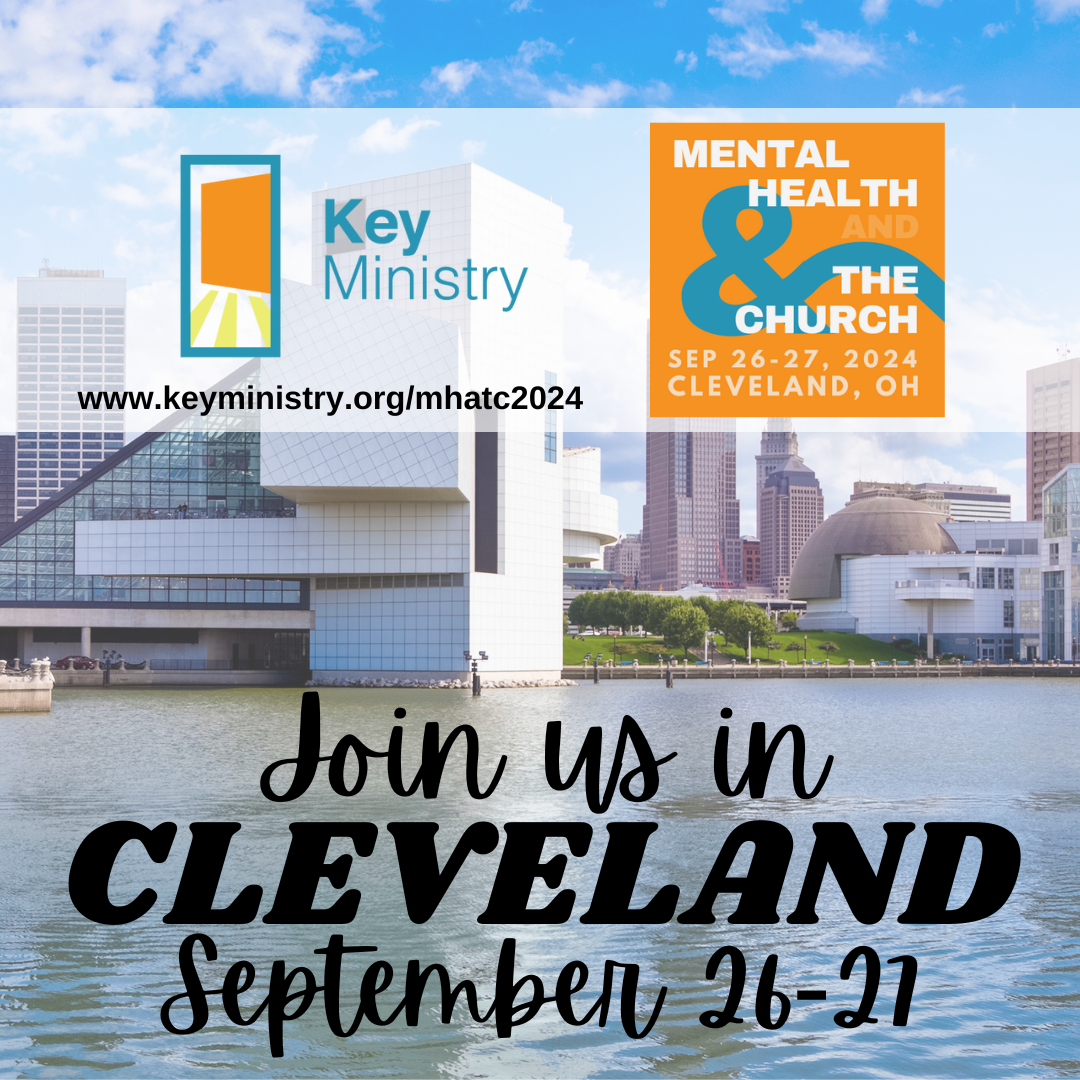“Why should I want to attend MHATC? Isn’t this going to be just like DATC?”
I’m glad you asked!
As we’re gearing up for Key Ministry’s first Mental Health and the Church conference, it’s natural to wonder about the differences between DATC and MHATC, and why we felt the need to host a second event this year.
In the context of faith and church participation, mental illnesses can be thought of as relentless unresolved needs that negatively impact the average Christ-follower’s relationship with Jesus - or a loved one’s relationship with Christ. The negative impacts of mental illness are often burdens too great to bear alone, whether as a person struggling with his or her own needs or as a caregiver for a loved one.
Mental illness and “hidden disabilities” (think neurological conditions like autism) are not visible by looking at someone. Each of these conditions are relentless, and are often accompanied by unresolved needs. Individuals with these challenges can benefit greatly from tailored approaches specific to relationship building and discipleship, within the context of the local church.
That’s what you will find at the Mental Health and the Church conference: speakers who present on approaches and resources that have been tailored to meet specific relationship-building and discipleship needs, all related to mental health. In this way, the Mental Health conference is very different from DATC.
Key Ministry’s core values are collaboration, connection and discipleship. We have assembled a group of speakers who have done this kind of work, or have done significant research into this work, and as a result have wisdom to share. The approaches and resources that will be shared can be used to bless and support individuals in your church, local community and maybe even in your home, too.
This blog post launches a short series about several specialty categories of MHATC speakers. We are calling our first group of ‘specialists’ The Professors.
If you know Dr. G, you know he loves to share solid research and create opportunities for academics and ministry professionals to learn from one another. Wherever you are with your understanding of mental health challenges and/or mental health ministry, this group of academics brings a variety of personal and professional insights to MHATC2024 that will grow your base of resources and expertise, whether you are just thinking about mental health ministry or have long established supports.
The Professors
Dr. Jennifer Hollenberger, Grove City College: A licensed clinical social worker with over 15 years of practice with children, youth and families, Dr. Hollenberger is also an associate professor of social work at Grove City College. Why speak at a mental health ministry conference? I am passionate about equipping the church to build a culture that promotes life; mental health ministry and engagement should be an extension of all pro-life ministries. I have 2 children with special needs, so mental health is not only a part of my professional life but also my personal life. I believe churches that are able to meet physical, emotional, and spiritual needs are vital to community and familial flourishing.
Dr. Chris Hulshof, Liberty University: In addition to serving as associate professor and Disability Ministry Program Director for Liberty University’s John W. Rawlings School of Divinity, Dr. Hulshof also frequently interacts with students who struggle with issues related to faith, mental health and suffering. His family knows what it is like to lose a family member to suicide, because of the impact of depression and mental health struggles. Why speak at a mental health ministry conference? I have worked with students who struggle with Religious Scrupulosity; I see how a poorly communicated Gospel message has impacted these students. I look forward to communicating what I have learned through research and personal conversation to help church leaders recognize something that is more than likely a silent struggle for members in their congregations.
Dr. Kristen Kansiewicz, Evangel University: Dr. Kansiewicz serves as assistant professor of counseling and is the graduate counseling Program Director at Evangel University. She has worked since 2005 to bring clinical mental health services into church spaces, establishing the Church Therapy model. Why speak at a mental health ministry conference? I have had a life-long passion for helping the church improve its response to those experiencing mental illness. This conference aligns with my vision, and honestly would be a dream come true to participate in the conference and connect with others nationally who share my calling.
Dr. Mark Mayfield, Colorado Christian University: Dr. Mayfield is—among other things—a former pastor, author, speaker, certified master Christian coach, mental health counselor, and Assistant Professor of Clinical Mental Health Counseling. He is founder of No Student Unseen, which helps schools navigate their mental health challenges with the Stop Light Alert for Mental and Emotional Wellness systems. Why speak at a mental health ministry conference? Dr. Mayfield has seen firsthand the mental health challenges impacting the next generation, from his extensive experience in mental and emotional health consulting with schools and faith-based organizations, as well as his experience as a teenager who unsuccessfully attempted suicide. Dr. Mayfield is a frequent conference speaker helping ministry leaders help students to embrace the messy healing process in themselves and those around them.
Dr. Jim Sells, Regent University: Dr. Sells is Professor and the Hughes Endowed Chair of Mental Health and Christian Thought at Regent University. He co-directs the Charis Institute, whose mission is to conduct research and develop resources for couples, families and the church. Why speak at a mental health ministry conference? Regarding the mental health crisis, the current system of care cannot adequately address the needs of millions of people—but the Church can. The Christian church is present in every community, and carries the mission to attend to the needy and demonstrate grace. This conference will help prepare, train and organize the Church to meet the needs at their front door.
Learn more about this group of speakers and the rest of the speaking team by clicking here. Register for the Mental Health and the Church 2024 conference here.





